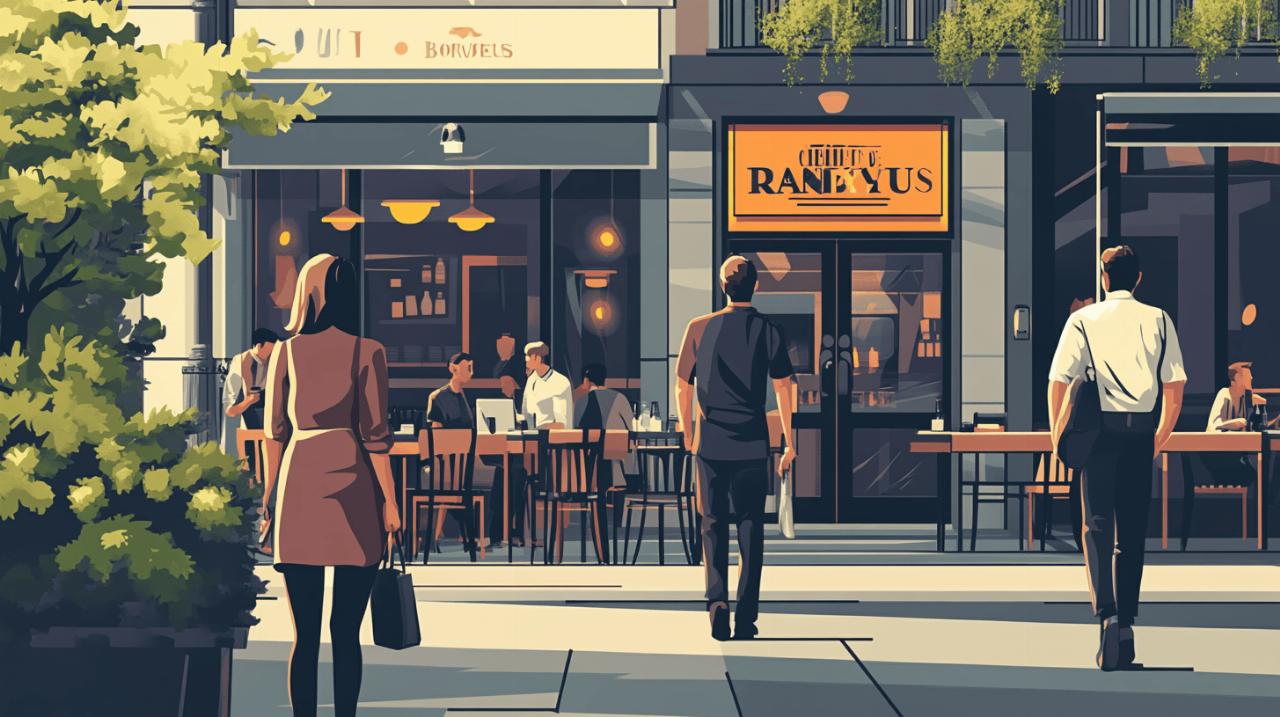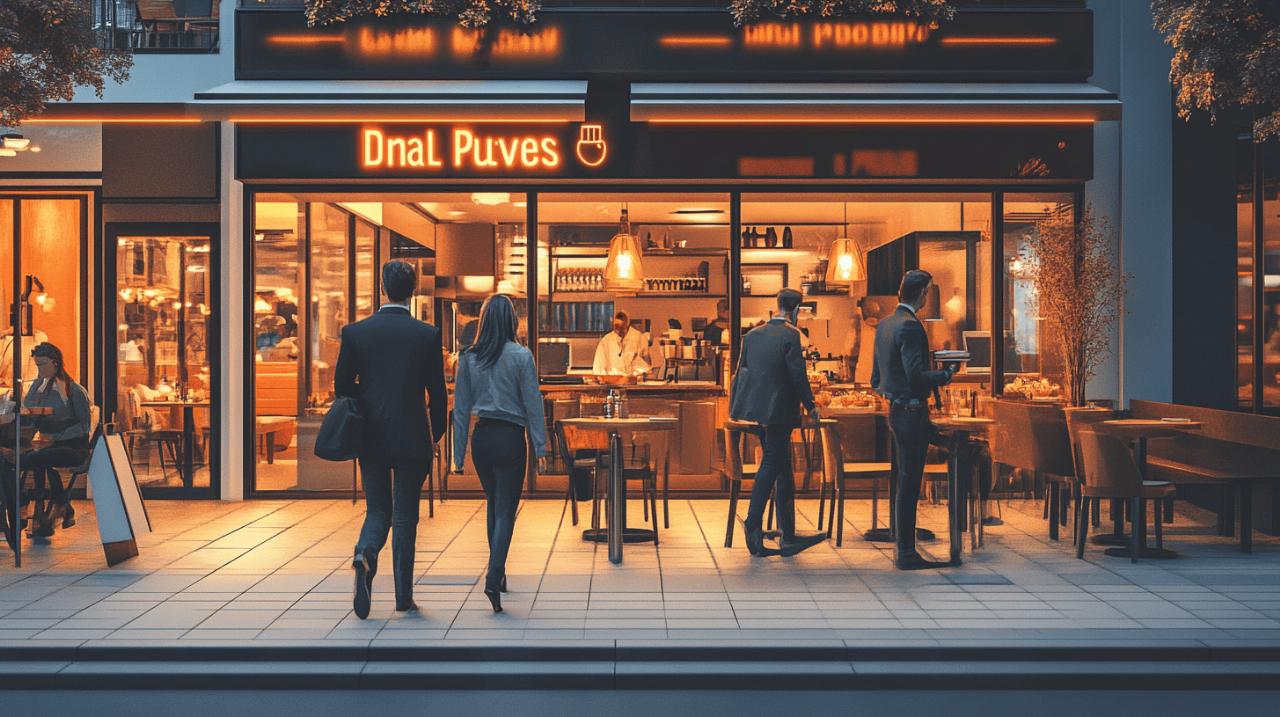Peut-on ouvrir un restaurant sans licence? Decoding British Food Business Requirements
Starting a restaurant in the UK isn't quite as straightforward as hanging up an 'Open' sign and firing up the cooker. While there isn't a single, all-encompassing 'restaurant licence', there's a series of essential registrations, permissions, and compliance requirements you'll need to navigate before serving your first customer. Let's explore what's really needed to legally establish a food business in Britain.
Food safety and hygiene requirements
Food safety forms the foundation of any legitimate food business in the United Kingdom. Before you can welcome diners through your doors, you must register your establishment with the local authority's environmental health department. This isn't optional—it's a legal requirement for anyone intending to sell, cook, store, handle, prepare or distribute food. Even if you're operating from home, a mobile unit, temporary premises, or exclusively online, registration is mandatory.
Registering with local environmental health
You must complete your food business registration at least 28 days before you plan to begin trading. This timeframe applies across England, Wales, and Northern Ireland, giving authorities sufficient notice to process your application. If your restaurant operates across multiple locations, remember that each individual site requires separate registration. Following your registration, expect a visit from an environmental health officer approximately one month after opening. They'll assess your premises and award you a Food Hygiene Rating based on their findings—a score that customers increasingly look for before choosing where to dine.
Staff training and food safety management
Beyond registration, you'll need robust food safety management systems in place. The law requires you to implement a HACCP (Hazard Analysis and Critical Control Points) plan to prevent contamination and ensure food safety throughout your operation. While formal qualifications aren't always mandatory for staff, you must demonstrate that your team has appropriate food safety training and knowledge. This means establishing clear protocols for food handling, storage, preparation, and service, as well as ensuring your staff understand and follow these procedures consistently. Regular training sessions and updated documentation are essential to maintain compliance with Food Standards Agency guidelines.
Alcohol and premises licensing
If you're planning to serve alcoholic beverages in your restaurant—which many establishments do to enhance profit margins—you'll need to navigate additional licensing requirements. Alcohol sales in the UK are strictly regulated, requiring specific permissions before you can legally serve a pint or glass of wine to your customers.
Personal licence for serving alcoholic beverages
To sell alcohol in your restaurant, at least one person involved in the business typically needs to hold a Personal Licence. Obtaining this licence involves completing an accredited training course and passing an examination on UK licensing laws. The Personal Licence authorises an individual to sell or supply alcohol, or authorise others to do so, in accordance with a Premises Licence. This person often becomes the Designated Premises Supervisor, taking legal responsibility for alcohol sales on the premises. The application process includes background checks and consideration of any relevant criminal history that might affect suitability for the role.
Applying for a Premises Licence
Beyond the Personal Licence, your restaurant will need a Premises Licence from the local council. This comprehensive document specifies the details of your operation, including opening hours, alcohol sales times, entertainment provisions, and capacity limits. The application involves submitting detailed floor plans, describing your intended activities, and specifying how you'll prevent public nuisance, ensure public safety, protect children from harm, and prevent crime and disorder. Following submission, there's a 28-day consultation period during which the public and responsible authorities can raise objections. Be prepared for this process to take time—securing a Premises Licence isn't something that happens overnight.
Property and building considerations
The physical space where you intend to operate your restaurant comes with its own set of legal requirements. Converting a property for food service use involves navigating planning regulations and ensuring compliance with building standards—elements that can significantly impact your timeline and budget.
Planning permission for restaurant premises
If you're changing the use of a building to create your restaurant, you'll likely need planning permission from the local authority. Properties are categorised under different 'use classes' in the UK, and converting from one class to another typically requires formal approval. For instance, transforming a retail shop into a restaurant represents a change of use that needs permission. The application process involves submitting detailed plans and may include considerations about parking, waste management, opening hours, and potential impact on the local area. Securing planning permission can take several months, so factor this into your timeline when planning your restaurant opening.
Building regulations and accessibility standards
Beyond planning permission, your restaurant premises must comply with UK building regulations, particularly regarding fire safety, ventilation, and accessibility. Under the Equality Act 2010, you're legally required to make reasonable adjustments to ensure your establishment is accessible to people with disabilities. This might include installing ramps, ensuring adequate door widths for wheelchair access, providing accessible toilet facilities, offering alternative format menus (such as Braille or large print), and training staff in disability awareness. Fire safety measures, including clearly marked exits, appropriate firefighting equipment, emergency lighting, and regular risk assessments, are also non-negotiable legal requirements.
Additional business requirements
Running a restaurant involves several other legal and administrative obligations beyond those directly related to food service. These requirements are essential for operating lawfully and protecting your business from potential liabilities.
Business rates and taxation
Your restaurant will be subject to business rates—a tax based on the property's rateable value. Additionally, you'll need to register with HMRC for tax purposes, with the specific requirements depending on your business structure. If operating as a sole trader, you'll register for Self Assessment tax. For limited companies, registration with Companies House is required, along with Corporation Tax registration. If your annual turnover exceeds £85,000, you must also register for Value Added Tax (VAT). Proper financial record-keeping is essential, as is compliance with payroll responsibilities if you employ staff, including deducting income tax and National Insurance contributions.
Insurance and music licensing
Insurance is another crucial consideration for restaurant owners. Public liability insurance, while not legally mandated, is strongly recommended to cover potential claims from customers who might suffer injury or property damage in your establishment. If you employ staff, employer's liability insurance is legally required. Property insurance protecting against building and contents damage is also advisable. Additionally, if you plan to play background music or host live performances in your restaurant, you'll need music licences from both PRS for Music and PPL, which cover the copyright for played music. Playing music without these licences constitutes copyright infringement and can result in significant penalties.
Establishing your restaurant's business structure
 Starting a restaurant in the UK doesn't require one single 'licence' but rather a collection of essential registrations and permissions. Before serving your first customer, you'll need to sort out your business structure, which forms the foundation of your food business operations.
Starting a restaurant in the UK doesn't require one single 'licence' but rather a collection of essential registrations and permissions. Before serving your first customer, you'll need to sort out your business structure, which forms the foundation of your food business operations.
When setting up a restaurant, you must register with your local authority at least 28 days before opening if you'll be selling, cooking, storing, handling, preparing or distributing food. This applies whether you're operating from commercial premises, your home, mobile units, or even online platforms.
Registering as a Sole Trader, Partnership or Limited Company
Your first major decision involves choosing the right business structure, which will affect your liability, taxation, and administrative responsibilities:
As a sole trader, you'll have complete control over your restaurant but face unlimited personal liability for any business debts. This means your personal assets could be at risk if the business struggles. You'll need to register with HM Revenue and Customs (HMRC) and submit an annual Self Assessment tax return.
A partnership distributes responsibilities and risks among partners, which can be beneficial for pooling resources. Each partner registers individually with HMRC and pays tax on their share of the profits. Though straightforward to set up, partnerships require clear agreements to avoid disputes about roles and profit sharing.
A limited company (Ltd) offers protection by separating your personal finances from the business. Your restaurant becomes a distinct legal entity, and your liability is typically limited to your investment. You must register with Companies House, file annual accounts, and comply with additional reporting requirements. While providing greater protection, this structure involves more paperwork and administration.
Hmrc requirements and vat registration
Once you've chosen your business structure, you must address several tax-related requirements:
If you're operating as a sole trader or partnership, you need to register with HMRC for Self Assessment. Limited companies must register with both HMRC for Corporation Tax and Companies House.
VAT registration becomes mandatory once your restaurant's taxable turnover exceeds £85,000. Even if you're below this threshold, voluntary registration might be beneficial as it allows you to reclaim VAT on business purchases. You'll need to charge VAT on applicable goods and services, keep detailed VAT records, and submit regular VAT returns.
You must also implement a proper payroll system if employing staff. This involves registering as an employer with HMRC, deducting income tax and National Insurance contributions from employee wages through PAYE (Pay As You Earn), and making employer National Insurance contributions.
All food businesses must maintain accurate financial records for at least six years, covering income, expenses, VAT (if registered), PAYE records for employees, and any other relevant financial transactions. These records are essential for tax returns and potential HMRC inspections.
While setting up your restaurant's business structure and addressing HMRC requirements forms the legal foundation of your food business, remember you'll also need to register with your local authority for food safety, consider premises licences for alcohol sales, implement proper health and safety measures, and address other regulatory requirements before welcoming your first diners.
